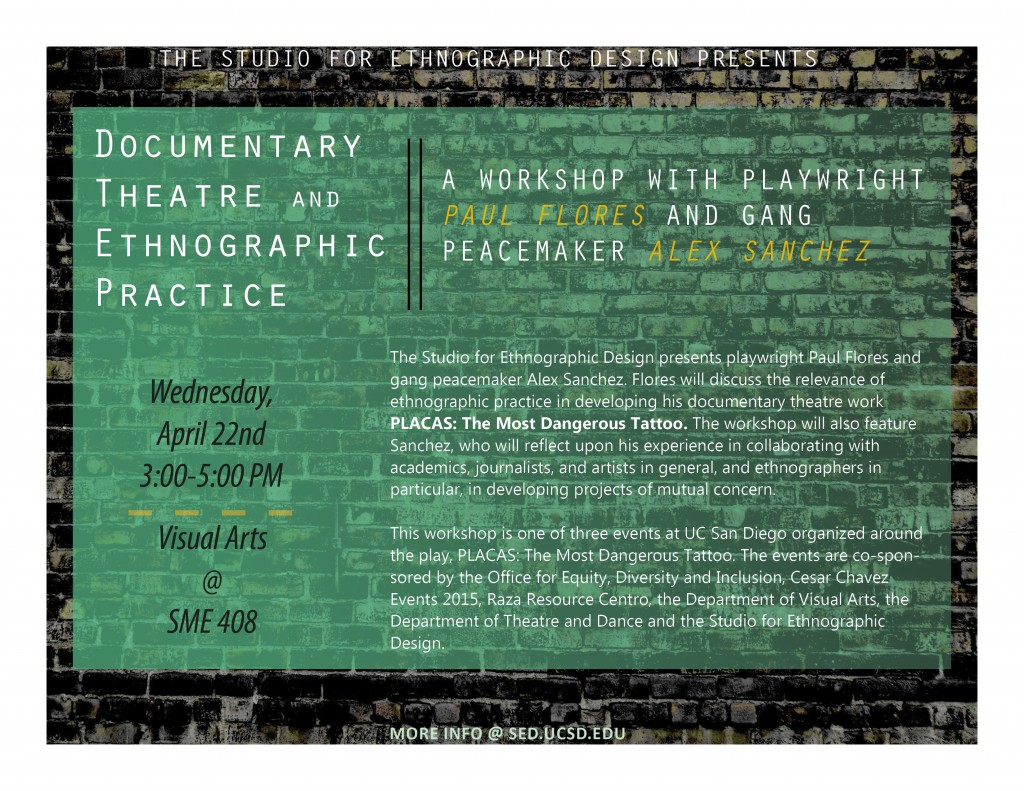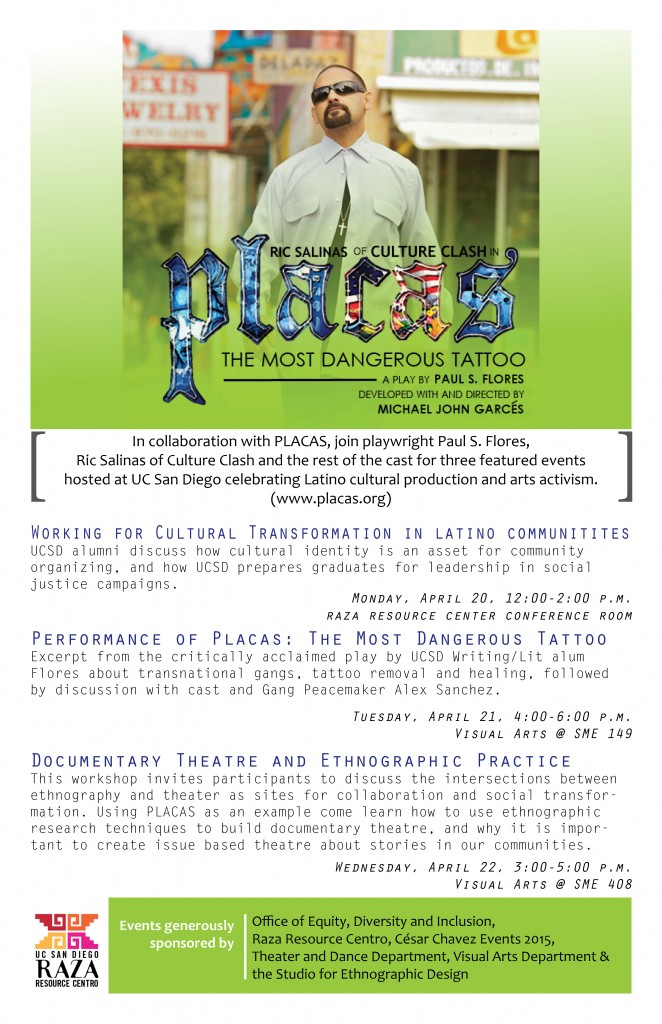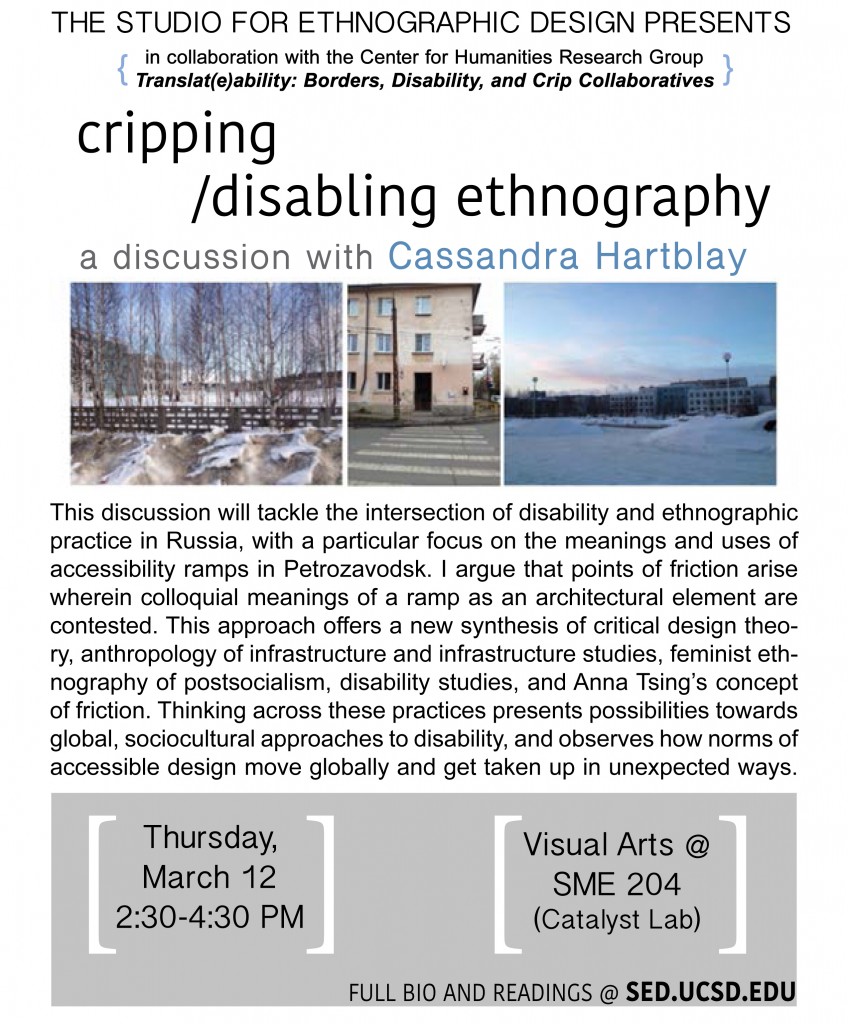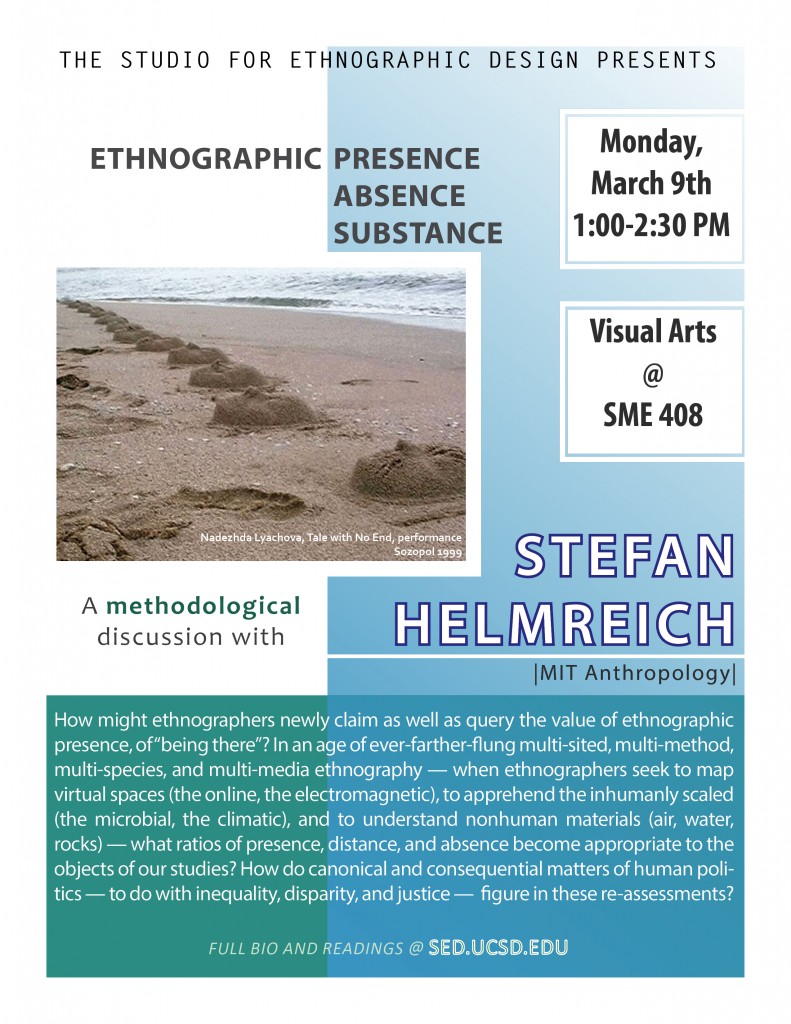The annual SED Open House will be held from 4-6p on Tuesday the 29th. Like last year, we’ll be holding the Open House in the Mandeville Suite, which in on the 11th floor of Tioga Hall in Muir College. Come to meet faculty and graduate students who are interested in ethnography and to hear about SED’s plans for the winter and spring quarters. Amongst other things, we plan to offer programming that explores the intersection of ethnographic practice and political engagement, broadly construed.
Second, starting this January SED will be sponsoring an Ethnography Practicum. The practicum is for graduate students and faculty who are currently working — at any stage — on an ethnographic project. It is a chance to workshop aspects of your project and to learn from fellow practitioners. The practicum will meet once a month throughout winter and spring quarters. Each month different faculty will be invited based on the issues or dilemmas that students want to address at that month’s meeting. Students can receive course credit (pass/no-pass) for the practicum by enrolling in ANTH 287, COGR 285, or ETHN 287 for the spring 2017 quarter. To receive course credit a student will need to attend the six practicums as well as 4 SED programming events over the span of the winter and spring quarters; exceptions and accommodations can be made for extenuating circumstances such as conference travel, job interviews, health issues, and so forth. Please note that the ethnographic practicum is meant as a supplement, not a replacement, for the ethnographic methods courses offered by various departments.
If you are interested in participating in the practicum, whether for course credit or just as an occassional attendee, please fill out this short form:









